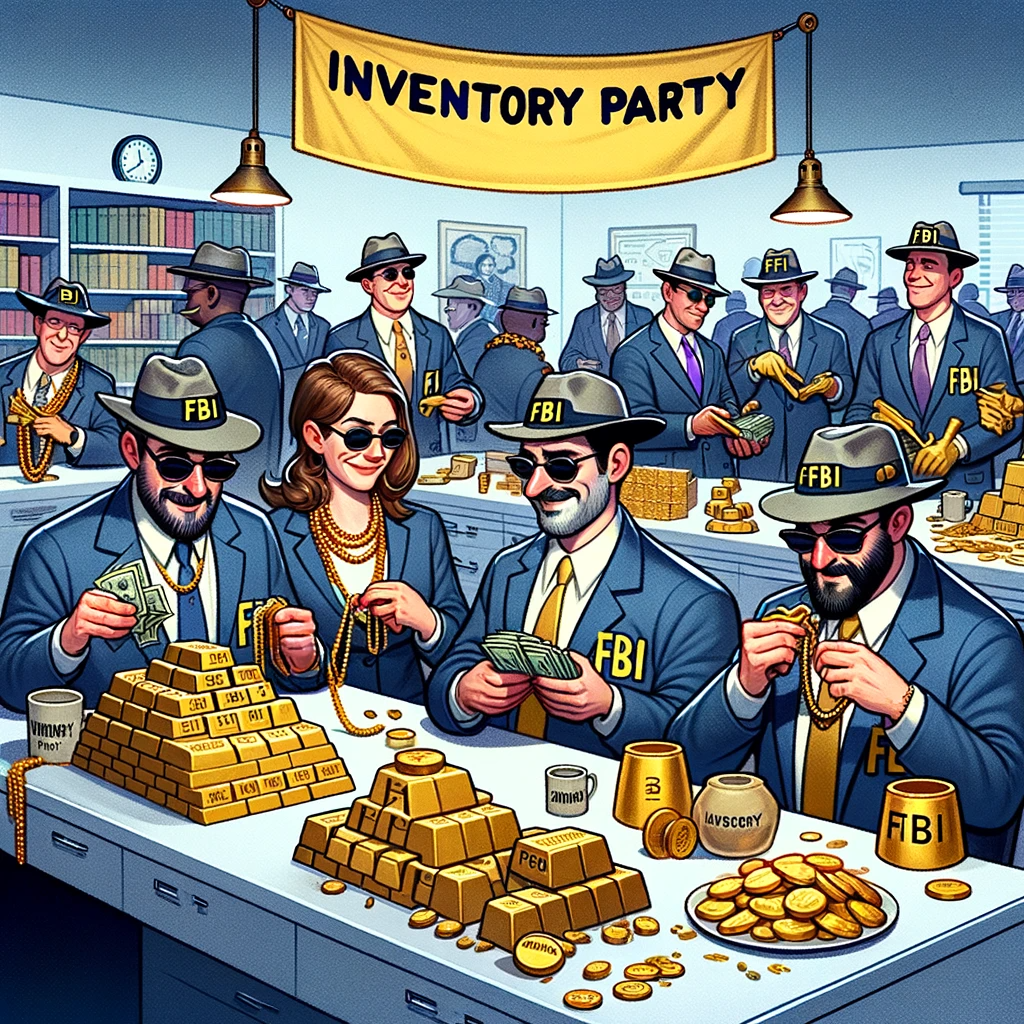
The FBI, growing frustrated in an investigation into a company that furnishes private lockboxes, got a warrant to search entire “nests” of lockboxes. Including lockboxes held by perfectly law-abiding plaintiffs, which are the subject of Snitko v. United States, No. 22-56050 (9th Cir. Jan. 23, 2024). When the FBI got the warrant, they told the magistrate the promised to give the stuff back. But when plaintiffs asked for their stuff back, the FBI decided to keep it.
(Well, no, not “keep” it. That word is too direct and precise. The word the law has come up with for state agents who take your stuff and decide to keep it is “forfeit.” They “inform[ed] Plaintiffs that [the FBI] sought to civilly forfeit their property.”)
What kind of stuff did the FBI try to keep, er, ‘forfeit’? Prof. Shaun Martin helpfully catalogs the innocent victims’ stuff:
Eventually, the FBI gave the stuff back. But they refused to destroy the records, so plaintiffs sued. The district court denied relief, ruling that the FBI followed “standardized” inventory protocol. But the 9th Circuit reversed, noting that the fact that the FBI promised to follow “supplemental instructions”—including to notify the plaintiffs and give their stuff back—meant that the “standardized” inventory protocols did not apply.
Concurring, Judge M. Smith noted that the inventory exception to the Fourth Amendment warrant requirement was meant for cars and incarcerated individuals and where the inventory was done for purposes of, well, inventory—not for purposes of an active, deliberate investigation, as was done here.
Although Judge Smith’s criticism of the innovations to the inventory-search doctrine was not adopted by the panel, he explained that it was properly before the court. True, plaintiffs did not raise that challenge specifically. But there is “no bright line rule . . . to determine whether a matter has been properly raised below.” Yamada v. Nobel Biocare Holding AG, 825 F.3d 536, 543 (9th Cir. 2016).
And besides, plaintiffs did raise a violation of Fourth Amendment rights. And when they did, they argued that the government contravened “the purposes traditionally associated with an inventory,” citing the leading case on the inventory search doctrine, South Dakota v. Opperman, 428 U.S. 364, 369 (1976). “[H]aving advanced its [impermissible search] theory before the district court,” Plaintiffs are “able to make a more precise argument on appeal as to why” the inventory search doctrine should not be extended here. United States v. Williams, 846 F.3d 303, 312 (9th Cir. 2016).
That, Judge Smith, meant that the argument was properly before the court.
(And Judge Bumatay also recently drew the distinction in Coal. On Homelessness v. City of San Francisco, No. 23-15087 (9th Cir. 2024)that waiver applies to claims, not arguments. “‘As the Supreme Court has made clear, it is claims that are deemed waived or forfeited, not arguments.’ United States v. Pallares-Galan, 359 F.3d 1088, 1095 (9th Cir. 2004) (citing Yee v. City of Escondido, 503 U.S. 519, 534 (1992)). San Francisco can make any argument in support of its claims on appeal-it is ‘not limited to the precise arguments [it] made below.’ Allen v. Santa Clara Cnty. Corr. Peace Officers Ass'n, 38 F.4th 68, 71 (9th Cir. 2022) (simplified).””)